Johns Hopkins UniversityEst. 1876
America’s First Research University
-
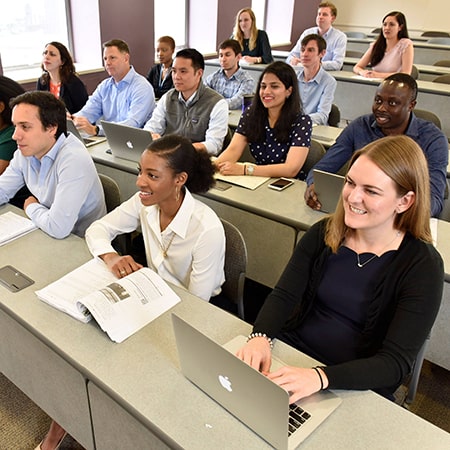
Master of Arts in International Relations (MAIR)
The majority of our students are enrolled in the Master of Arts in International Relations degree. The program's interdisciplinary coursework emphasizes international economics, international policy, regional studies, international relations, and languages.
- Campus Washington DC SAIS Europe Hopkins-Nanjing Center
- Program Credits 64 Credits
- Duration Two Years; Full-time
- Work Experience 0 to 4 Years
- GRE Required Optional
-
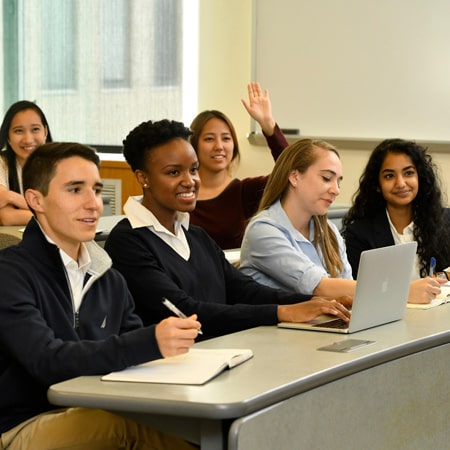
Certificate in Chinese and American Studies
The one-year certificate offers flexibility in course selection while deepening their knowledge of Sino-global relations. Graduate-level courses require intermediate to advanced level proficiency in Mandarin prior to beginning study.
- Campus Hopkins-Nanjing Center
- Duration One Year; Full-Time
- Work Experience 0 to 2 Years
- GRE Required Optional
-

Master of Arts in Strategy, Cybersecurity, and Intelligence (MASCI)
A one-year degree that prepare students to advance their careers in the field of national security, intelligence, and diplomacy.
- Campus Washington DC
- Program Credits 40 Credits
- Duration One Year | Full-time; Part-time is available
- Work Experience 0 – 4 years
- GRE Required Optional
-
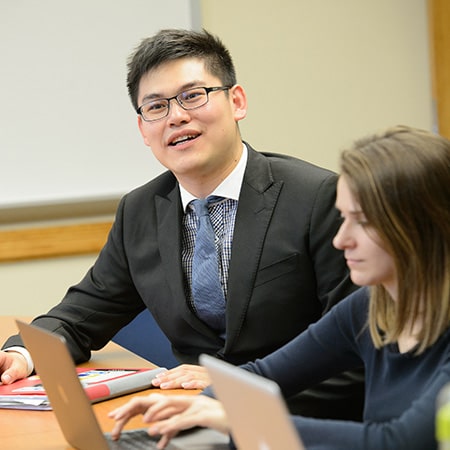
Certificate in Chinese and American Studies + MAIR
Students in this program complete the certificate in Nanjing and continue their Master of Arts studies for two to three additional semesters to enhance their economic and quantitative reasoning skills.
- Campus Washington DC SAIS Europe Hopkins-Nanjing Center
- Duration Two Years; Full-Time
- Work Experience 0 to 2 Years
- GRE Required Optional
-
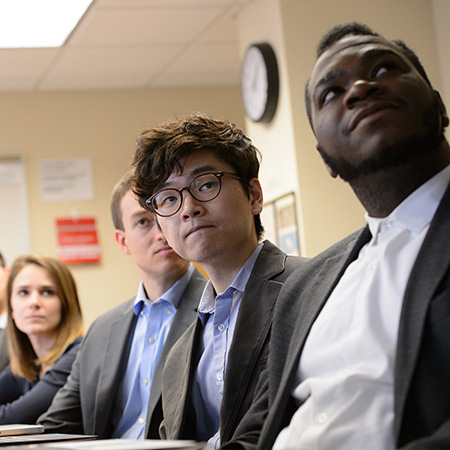
Certificate in Chinese and American Studies + Master of Arts in International Affairs
Students in this program complete the certificate in Nanjing and continue their Master of Arts in International Affairs studies for two additional semesters to focus on contemporary issues in international affairs.
- Campus Hopkins-Nanjing Center SAIS Europe
- Duration Two Years; Full-Time
- Work Experience 0 to 2 Years
- GRE Required Optional
-
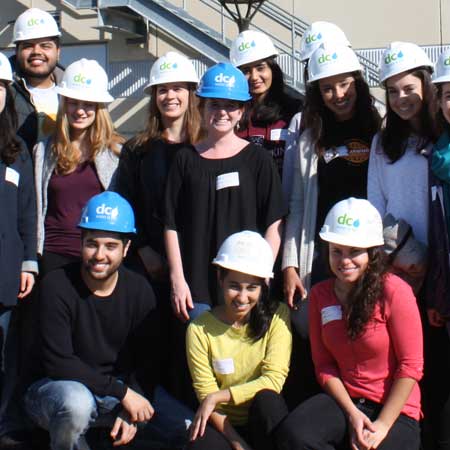
Certificate in International Development
Gain the skills and knowledge to conceptualize issues through social, political, economic and environmental aspects of development.
- Campus Washington DC
- Duration Accelerated; One Semester | Part-Time is available
- Work Experience 0 to 4 Years
-
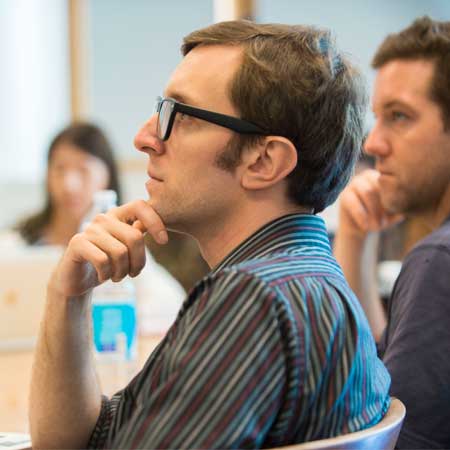
Certificate in International Economics
Research the flow of capital, labor, investment and trade among nations, while obtaining the qualitative and quantitative skills necessary for economic forecasting.
- Campus Washington DC
- Duration Accelerated; One Semester | Part-Time is available
- Work Experience 0 to 4 Years
-

Certificate in International Studies
Develop expertise in a particular policy area or region of the world, or experience a broader overview of international relations through interdisciplinary study.
- Campus Washington DC
- Duration Accelerated; One Semester | Part-Time is available
- Work Experience 0 to 4 Years
-

Diploma in International Studies | SAIS Europe
The diploma requires two semesters at SAIS Europe and includes a language requirement. This certification of graduate coursework in international studies is particularly useful if you hold or are earning a master’s degree.
- Campus SAIS Europe
- Duration One Year; Full-Time
- Work Experience 0 to 4 Years
- GRE Required Optional
-
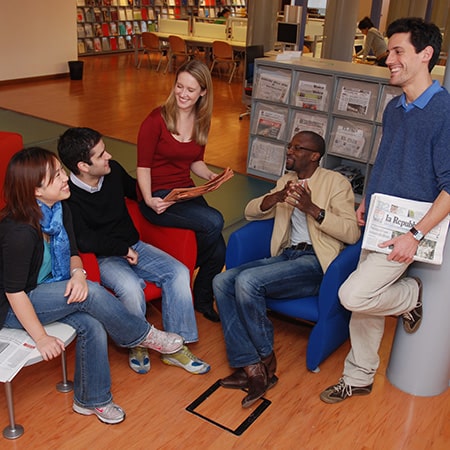
Doctor of International Affairs (DIA)
Experienced professionals seeking an advanced practitioner’s degree can pursue a two-year track or three-year track (without a master’s degree).
- Campus Washington DC SAIS Europe
- Duration Two and Three Year tracks; Full-Time | Three Years; Part-Time
- Work Experience 5 to 12 Years
- GRE Required Optional
-

Doctor of Philosophy (PhD)
The full-time doctoral program is for master's degree-holders seeking to become scholars or practitioners in international relations. Work with a faculty advisor on a personalized academic and research plan for their dissertation.
- Campus Washington DC
- Duration Average time to completion 5.5 years; Full-Time
- Work Experience 4 to 6 Years
- GRE Required Yes
-

Master of Arts in European Public Policy (MEPP)
This one-year, cohort-based degree program will prepare you to work with, or for, the institutions of the European Union.
- Campus SAIS Europe
- Program Credits 40 Credits
- Duration One Year
- Work Experience 0 to 4 Years
- GRE Required Optional
-
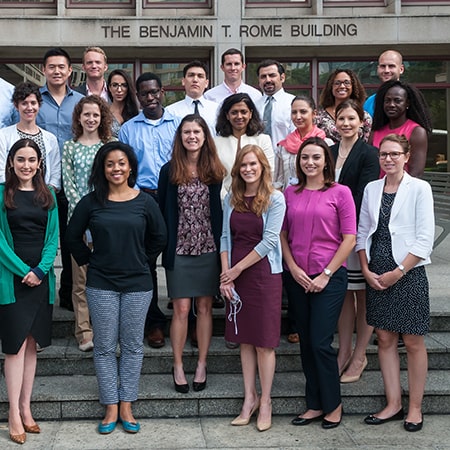
Master of Arts in Global Policy (MAGP)
This 16-month master’s program develops experienced professionals into global leaders while they maintain full-time employment. The curriculum in this cohort-based program covers international politics, economics, strategy, and law.
- Campus Washington DC
- Program Credits 40 Credits
- Duration One Year; Accelerated Executive Style MA for Full-Time Working Professionals
- Work Experience 7 Years Minimum
- GRE Required Optional
-
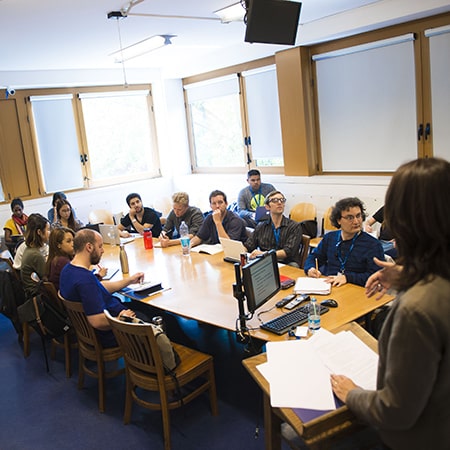
Master of Arts in Global Risk (MAGR)
This one-year, cohort-based program gives you the concepts and tools to undertake sophisticated political and economic risk analysis. The program requires a capstone project of a focused summer internship or original thesis.
- Campus SAIS Europe
- Program Credits 50 Credits
- Duration One Year
- Work Experience 2 to 4 Years
- GRE Required Optional
-

Master of Arts in Global Risk (MAGR - Online)
The Master of Arts in Global Risk is a cohort-based program that is delivered online and is completed in 21 months with innovative residencies at SAIS Europe in Bologna, Italy and the school’s main campus in Washington DC.
- Campus Online & Distance
- Duration Part Time: 21 Months
- Work Experience 0 to 2 Years
- GRE Required Optional
-
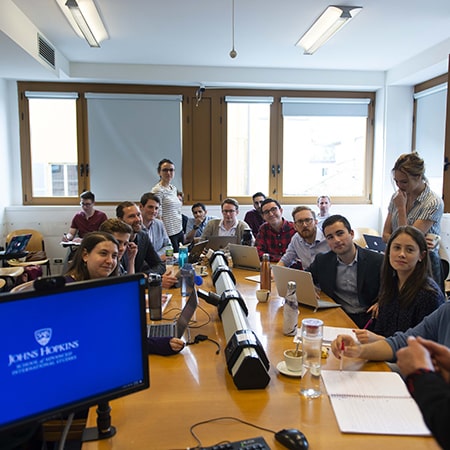
Master of Arts in International Affairs (MAIA)
This two-year, research-focused degree lets you personalize the curriculum. Pursue both years at SAIS Europe, one year at a cooperative degree program, or one year at the Hopkins-Nanjing Center.
- Campus SAIS Europe Hopkins-Nanjing Center
- Program Credits 64 Credits
- Duration Two Years; Full-time
- Work Experience 0 to 2 Years
- GRE Required Optional
-

Master of Arts in International Studies (MAIS)
This two-year program is fully accredited in both China and the United States. Non-Chinese students complete coursework and a thesis in Mandarin, culminating in a degree jointly awarded by Johns Hopkins SAIS and Nanjing University.
- Campus Hopkins-Nanjing Center
- Duration Two Years
- Work Experience 0 to 2 Years
- GRE Required Optional
-
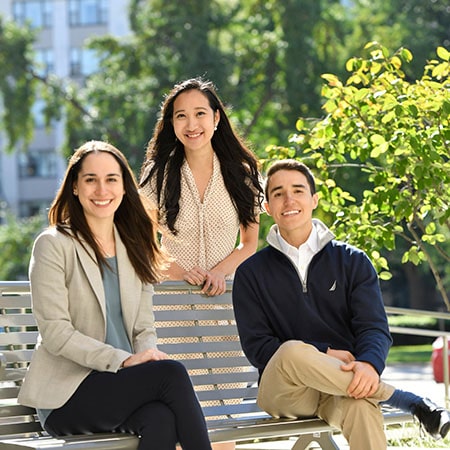
Master of Arts in Sustainable Energy (MASE - Online)
This cohort-based program is delivered online and is completed in 21 months. Combining policy, technology and economics education, the degree prepares graduates to lead clean energy research, policy and development initiatives.
- Campus Online & Distance
- Duration Part Time: 21 Months
- Work Experience 0 to 2 Years
- GRE Required Optional
-
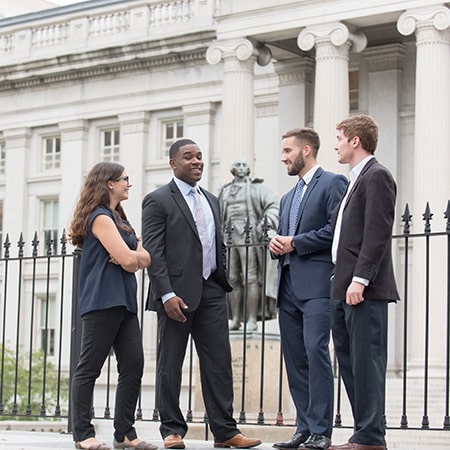
Master of Arts in International Economics and Finance (MIEF)
This one-year, cohort-based program positions professionals to excel in rigorous economic and financial analysis roles. Understand advanced economic theories, econometrics, and international financial scenarios.
- Campus Washington DC
- Program Credits 56 Credits
- Duration Two-Year Track; Full Time | One-year Accelerated Track; Full-Time
- Work Experience 0 to 2 Years
- GRE Required No
-
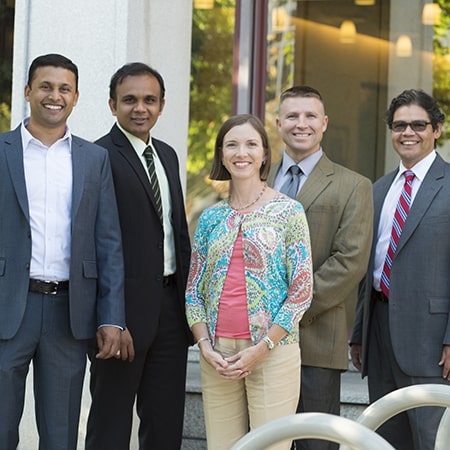
Master of International Public Policy (MIPP)
This flexible program is designed for experienced professionals who wish to develop advanced analytical and leadership skills. Earn your degree in the equivalent of one academic year.
- Campus Washington DC SAIS Europe
- Program Credits 32 Credits
- Duration One Year; Full-Time | Part-Time is available
- Work Experience 7 Years Minimum
- GRE Required Optional
-

Summer Programs
The school welcomes visiting students and working professionals to explore the world of international relations during the summer term. Summer courses count towards certificate programs and can transfer to most of the school’s degree programs.
- Campus Washington DC SAIS Europe
- Duration One Term
- Work Experience 0 to 4 Years
-
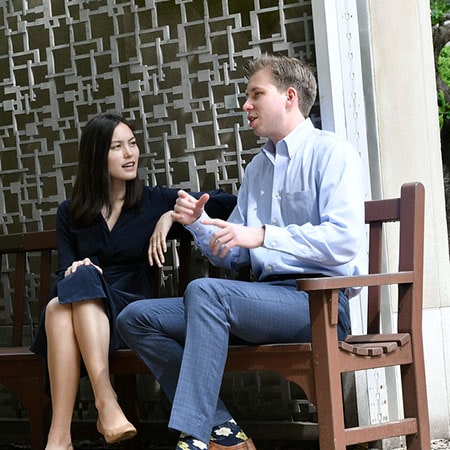
Individual Courses
Non-degree students can enroll in individual courses in the fall, spring, or summer term in any of the school's areas of study. Courses count toward certificate programs and can transfer to most of the school’s degree programs.
- Campus Washington DC
- Duration Part-Time
- Work Experience 0 to 4 Years